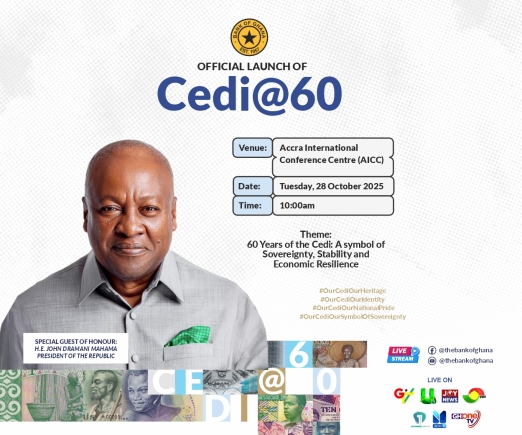I have friends who often used the phrase “for God and country” as motivation for venturing into politics and public office, knowing the hazards that come with it.
I recall the famous phrase “obiaa boa, interest nkoaa”, which loosely translated as “no one is being truthful, everyone is driven by personal interests” in the lead-up to the 2024 elections.
It may have been a simple political phrase weaponised by certain partisans to respond to their critics.
However, upon further reflection, it reveals a deeply worrying narrative about the nature of our politics and what truly motivates those who seek elected and appointed office.
I intentionally avoided the Attorney General’s (AG) press conference on Wednesday, October 22, 2025. It is not because whatever the AG had to say was not worthy of my attention.
No. Especially for a political observer and one who regularly provides media commentary on these matters, it was extremely important to listen to the press conference.
But these press conferences, for all the valuable information they provide to the public, produce another effect for me – growing cynicism about politics and public service.
I read the news reports about the press conference later and some of the revelations shared with the public.
I have been asking myself a few questions since.
Why do people enter politics? Why do people accept political appointments?
Why do people choose a life of public service?
Perhaps answers to these questions will help provide the needed road map to successfully fight corruption in government.
For God and country
What does a public office holder, truly motivated by “for God and country,” look like?
For this type of elected public office holder, he or she puts national interest first.
They are constantly, not just asking “how will this help Ghana and move the development needed one notch up,” but actively seek to join hands even with their political adversaries to solve the country’s most vexing problems.
When motivated by “for God and country,” the goal is not the next election but rather the next phase of development.
More importantly, when motivated by “for God and country,” public problems are not opportunities for scoring political points, but rather for seeking lasting solutions because that is what Ghanaians are looking for.
For the appointed public office holder motivated by “for God and country,” they are simply guided by this question: “How can I, in my appointed role, help the person who appointed me, implement the policies and programmes needed to move the country forward?”
And for the permanent public officers who fill various public and civil service jobs across the country, when motivated by “for God and country,” they simply do their jobs as the frontline workers of our bureaucracy, delivering programmes and providing service while at the same time ensuring the judicious use of our resources.
Across all these groups of people, they are satisfied with their compensation and the benefits provided to them as public officers.
Narrow selfish interests
Alternatively, if a public office holder is motivated by narrow selfish interests, their actions reflect the very opposite of what I describe in the previous section regarding those motivated by “for God and country.”
For this group of people, public office holding serves narrow and selfish purposes such as engaging in acts of corruption to enrich oneself, nepotism by prioritising family, friends and close political associates, disregarding conflict of interest rules, and violating many other rules of public ethics with impunity.
For those elected and appointed, partisan interests trump national interests because party comes first, and the nation comes second.
And when their actions are subjected to public scrutiny, they respond with venom.
When all is said and done, for those motivated by narrow selfish interests, the nation’s resources are not to be protected.
Rather, they see the nation’s resources as a free source of instant wealth to be grabbed without restraint, with the hope that there will be no consequences.
What the country needs
Certainly, the country needs public office holders motivated by “for God and country.”
Public office holding must have a more noble purpose and reflect a desire to truly serve the country.
The question is, how can we develop such a public ethics culture?
As a good first step, we cannot afford the luxury of not holding accountable people found culpable of using their public office to engage in malfeasance.
Perhaps the certainty of punishment will serve as a deterrent and encourage more public office holders to embrace the idea that it is better to be motivated by “for God and country” than to be motivated by narrow selfish interests.
Let’s ask ourselves this question. For how long can a nation so blessed continue to bleed? I hope not forever.
The writer is the Project Director, Democracy Project


